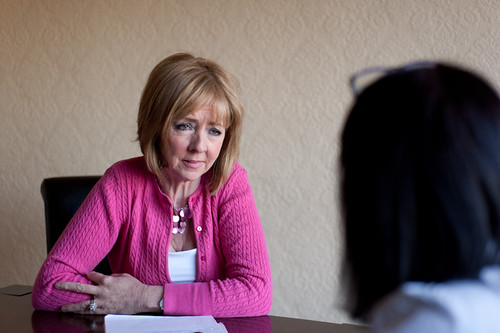 As a Collaborative Divorce Attorney, I have seen many clients who are ambivalent about getting a divorce. How do I know they are ambivalent? Because, in addition to the story they tell me, I ask potential clients to take the following survey:
Even though divorce is a legal process, your emotions and your perspective on divorce, and those of your spouse, are very important and cannot be separated from the legal process. To assist me in beginning to understand your views about proceeding with divorce, please answer the following questions.
1. People have different attitudes towards their divorce. Please check which of these statements most closely fits your own attitude right now.
As a Collaborative Divorce Attorney, I have seen many clients who are ambivalent about getting a divorce. How do I know they are ambivalent? Because, in addition to the story they tell me, I ask potential clients to take the following survey:
Even though divorce is a legal process, your emotions and your perspective on divorce, and those of your spouse, are very important and cannot be separated from the legal process. To assist me in beginning to understand your views about proceeding with divorce, please answer the following questions.
1. People have different attitudes towards their divorce. Please check which of these statements most closely fits your own attitude right now.
( ) I’m done with this marriage; it’s too late now even if my spouse were to make major changes.
( ) I have mixed feelings about the divorce; sometimes I think it’s a good idea and sometimes I’m not sure. ( ) I would consider reconciling if my spouse got serious about making major changes. ( ) I don’t want this divorce, and I would work hard to get us back together. 2. Readiness for Divorce People come to the divorce process with different degrees of readiness to divorce. Some may not want the divorce and are not emotionally prepared to participate in the process, while others have been ready for some time and feel impatient to get things moving. And there is a wide range of feelings in between. Please rate yourself on the scale below by circling the number that best describes your readiness for divorce today. 0 1 2 3 4 5 6 7 8 9 10 _________________________________________________________ I’m absolutely not I’m ready to move ready for this divorce forward immediately This survey was created by a group of collaborative divorce attorneys working with Dr. William Doherty of the University of Minnesota. After giving this survey to people whose divorces had already been filed in court (Hennepin County, Minnesota), it was determined that in 12.6% of the filed divorce cases both spouses in the marriage were not sure they wanted the divorce! This led to the recognition that there was a failure to provide services to this group of people. That has now been corrected. Couples who are ambivalent about divorce can now gain clarity about whether to move forward with a divorce or to move forward with a plan to restore the marriage to health. This clarity is achieved through specialized counseling called Discernment Counseling. Discernment Counseling is a focused, short-term process involving no more than 4 to 6 sessions. A Discernment Counselor helps the couple…- gain clarity and confidence about what steps to take next with their marriage;
- understand what has happened to their marriage;
- look at problems from the perspective of each spouse;
- determine whether past counseling has been helpful or not so helpful;
- evaluate the possibility of solving their problems and restoring their marriage to health; and
- make a joint decision about whether or not to move towards divorce.



